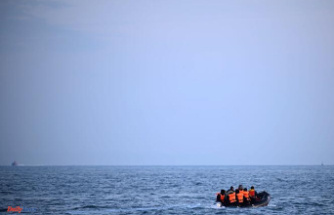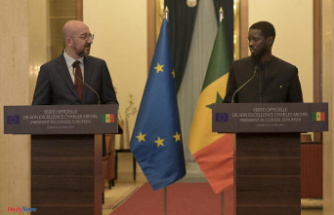The writer Issac Rosa (Seville, 1974) has won the Brief Library Prize for his novel A safe place, a bitter comedy starring a commercial come unless he aspires to give the ball with the sale and construction of shelters aimed at the more Humble The prize, convened by the Seix Barral publishing house, is endowed with 30,000 euros and this edition has been presented 858 manuscripts. The jury, composed of Juan Manuel Gil, Pere Gimferrer, Benjamín Prado, Elena Ramírez and Andrea Stefanoni, has highlighted Rosa's ability to "Uncomfortable" and "catch the controversy of the moment of uncertainty in which society currently lives."
The novel is a portrait of three generations of a family accustomed to socially scale taking advantage of the "cracks of the system" that takes place in 24 hours. According to the writer Juan Manuel Gil, the novel "has an irony that comes with the best tradition of our literature" by portraying "a not too distant future that puts you chicken skin." For Benjamín Prado, the novel manages to trap perfectly "that virus that runs through the world, money". Insurance place Part of the obsession by the antinuclear shelters that arose in the 50s and that today experiences a disturbing revival among the richest fueled by the fear of these pandemic times.
"I wanted to write about the collective mood that is to see the future as a container of threats, something that has not done more than sharpest with the pandemic," explains Rosa. A global sensation of "Futurefobia" that makes us "reflected in the present, that we accept it as it is and that we look at the past with nostalgia, idealizing it." According to the Sevillian writer, a safe place is not an "amendment to the totality to the Distópical Literature", but rather "an antidistopia that tries to get out of that lane through which a good part of the national and international production circulates in which it seems that Nothing is going to go better. "
In the novel there are two groups that are prepared for the Apocalypse and opt for different positions: on the one hand there are the preps, who believe in the Sálvee who can and individualism, an equivalent to the survivalists or preparationists. "We laughed at them, we think of pirades because they accumulate supplies and food, but we have all returned a bit prepasses from the pandemic," says Rosa. At the other extreme are the butijers, to which the narrator, the cynical segismundo García, criticizes for being too good and naive for believing in solidarity and community support networks.
History is explained from the discretion: in the novel there is also a ray of hope in the form of a citizen movement, "a possibility of change" that pink has described from elements that already exist today. "The idea is to tell that alternative from one point of view of someone who does not believe that the future will go better precisely so as not to fall into idealization and show, also, limitations and contradictions that any possibility of change".
The novel, written in full pandemic since "distrust to the future", is a refutation of the apocalyptic narrative of many of the current fictions. "If this has been the apocalypse, I think it has been disappointing, but for good. With the pandemic we have seen that before the threat, we do not kill each other for the last liter of gasoline. Most people have been involved in solidarity creating support networks. It has not been a salave who can. That is the lesson and what should give us is a bit more hope in the future, "pink reflects, defining the winner of the brief library as his Novel "more optimistic and fun". In bookstores next March 9.
Date Of Update: 07 February 2022, 10:24











